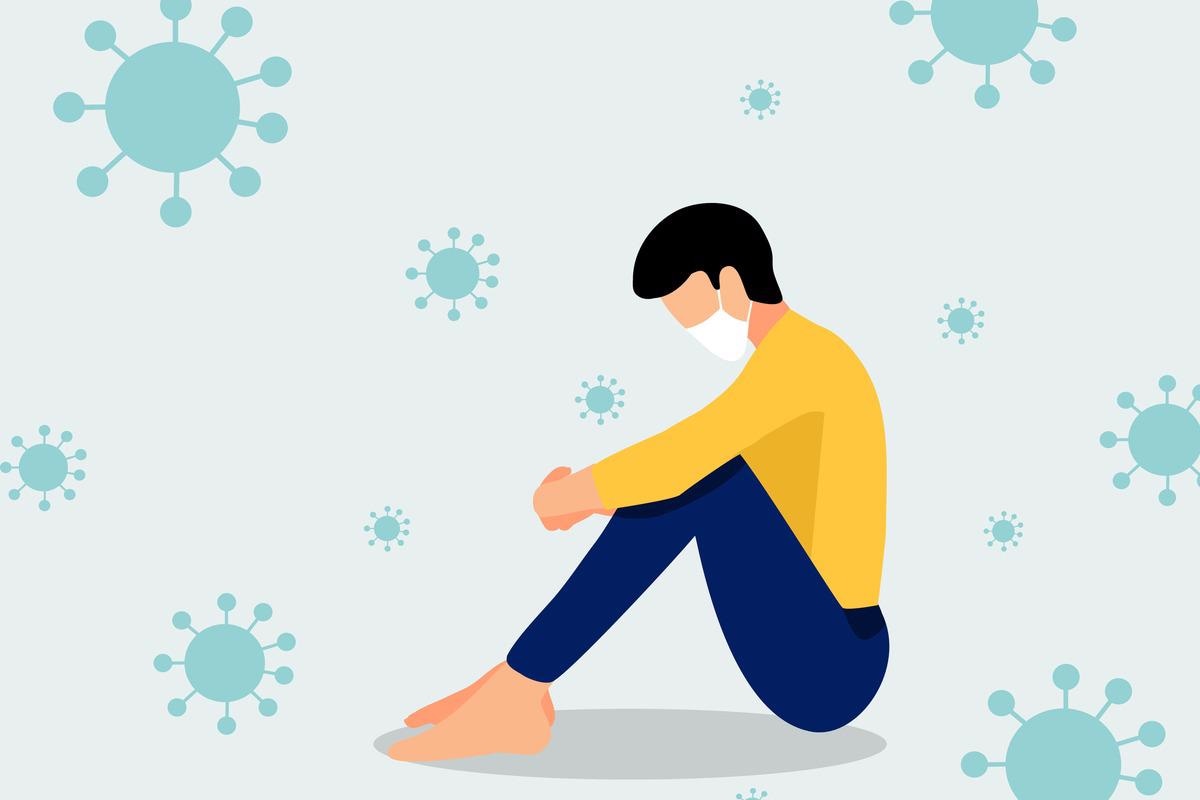Ongoing case surges and pandemic effects leave impact on student mental health. Graphic courtesy of news-medical.net.
ALLISON MCELROY | STAFF REPORTER | aamcelroy@butler.edu
2022 marked the entrance into the third year of the COVID-19 pandemic. Since March 2020, the difficulties of living and attending school during a pandemic have taken a toll on many students’ mental health.
Madison Morrett, a staff therapist at Butler Counseling and Consultation Services, has seen firsthand how the pandemic has impacted students at Butler.
“In general, since the pandemic began, we’ve seen an increase in the number of students reaching out for mental health services,” Morrett said in an email to The Butler Collegian. “For some, the pandemic was the reason for starting therapy for the first time. For others, the pandemic has exacerbated previous mental health struggles and kept some in therapy longer or brought people back into therapy after some time away.”
Butler students returned back to campus amidst a surge in cases due to the Omicron variant. Anastasia Reinholt, a first-year exploratory business major, expressed her concerns about how life on campus will be altered by this new wave of the pandemic.
“I’m just constantly worried about it,” Reinholt said. “It’s always, like, in the back of my mind, ‘Are we gonna go online? What’s that gonna look like?’ There’s just a little worry and a little anxiety about what’s happening next.”
Reinholt believes one measure the university could take to help reduce students’ anxiety is to put policies in place for professors to ensure that students who test positive for COVID-19 and must quarantine will not fall behind in their academics. Since some students may hesitate to get tested because they want to avoid the possibility of having to miss classes, Reinholt thinks a policy like this would make herself and others “more inclined to get tested, more inclined to take the precaution.”
Sarah Blade, junior biology and classics double major, also reflected on the difficulties of attending school during the pandemic along with the impacts this has had on her mental health. Blade, who is autistic and has ADHD, explained that increased use of online learning has been a struggle for her.
“School is already really hard for me, and I already have to make a ton of adjustments to make it work for me to begin with … it’s just been really hard to adapt for [online learning],” Blade said.
Blade said giving herself grace with her expectations has been an important way for her to cope with these struggles. Blade also expressed the importance of understanding and empathy from her professors in this regard.
“It’s like yeah, you might not get the grade you wanted on a test, but also we’re in a global pandemic and you’re trying your best,” Blade said.
Blade explained one thing Butler can do to help her improve her mental health is to continue encouraging a safe campus atmosphere in order to keep people healthy.
For those seeking professional support, CCS offers individual and group therapy services. Additionally, Let’s Talk sessions are available Monday through Thursday on Zoom and in-person in the Diversity Center on Mondays and Fridays.
CCS is also starting a new space this semester called “UNWIND,” which will be located in HRC room 119 and is available for students to reserve for about a 45 minute period on Mondays and Fridays between 8:30 a.m. and 4:30 p.m. Morrett said this is a “quiet, private room” with many different stress-relieving tools such as a reclining chair, guided relaxation exercises and an oil diffuser. Students can make reservations by contacting CCS by phone at (317)-940-9385.
Morrett also recommended sleeping and eating well and going on brief walks as ways for students to take care of their physical wellness. Additionally, she suggests that students use other campus resources such as the Center for Faith and Vocation, the Diversity Center and other student organizations.
“Finding connectivity and community in areas that feel supportive can be helpful for students who are struggling,” Morrett said.
For Reinholt, this looks like making time to socialize and hang out with her friends, while still taking the necessary precautions to protect each other.
“COVID does exist,” Reinholt said. “COVID is present, but … you don’t need to like, huddle yourself into your dorm … you just need to be a little bit more cautious.”
While the pandemic has presented many struggles throughout Butler students’ college experience, Morrett said students have been “resilient.”



